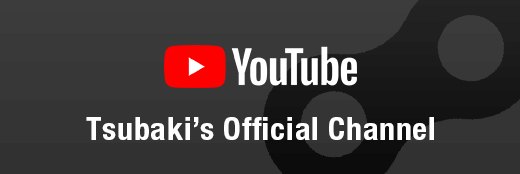Supply Chain Management (Business Partners)
Basic Concept
In order to perform high-quality manufacturing and contribute to a sustainable society, the Tsubaki Group is working to strengthen our cooperation with partner companies (suppliers). Based on fair and equitable dealings, and through procurement activities that take into consideration our social responsibilities including environmental conservation, the respect of human rights, and compliance, we will continue contributing to realizing a sustainable society and strengthening partnerships.
Basic Procurement Policy
The following is our Basic Procurement Policy:
1. Fair and Equitable Dealings
We provide open, fair, and equitable opportunities to suppliers inside and outside Japan wishing to conduct business with us.
In selecting suppliers, we will take into consideration quality, cost, delivery schedules, the ability of the supplier to provide a stable supply, technological strength and know-how, the financial position of the supplier, and other factors.
2. Developing Relationships of Mutual Trust
We respect free competition and aim to deepen our relationships of trust with all suppliers through fair business transactions.
3. Promotion of Developmental Procurement
We promote developmental procurement in order to cooperate with our suppliers in reducing costs as much as possible. We welcome and evaluate new proposals from suppliers who wish to provide their extensive and specialized knowledge and know-how, new technologies and products.
4. Legal Compliance (safeguarding of confidential information)
We comply with all laws and regulations related to procurement in both letter and spirit. We do not disclose any sales or technical information we receive in the course of our procurement activities with suppliers to third parties without the consent of the supplier.
5. Prioritizing the Environment (Green Procurement)
We understand that the conservation of the Earth’s environment is one of the highest priorities for mankind. It is our basic policy to procure environmentally friendly materials.
6. Conflict Minerals
In order to fulfill our corporate social responsibility in procurement activities, we will cooperate with our suppliers to ensure transparency in the supply chain and avoid the use of conflict minerals as a financial resource for armed groups, in accordance with Article 1502 of the Financial Regulatory Reform Act (Dodd-Frank Act) enacted in the United States in July 2010.
Established: December 11, 2006
Revised: April 1, 2020
Initiatives for Sustainable Procurement
In recent years, the urgency of addressing global environmental and energy concerns has intensified, and the emergence of an increasingly technology-driven society has led to greater and more varied expectations placed on companies. In light of this, our goal at the Tsubaki Group, guided by our corporate philosophy of the Tsubaki Spirit, is to exceed societal expectations as a manufacturing company and to remain relevant and valued by society.
Throughout our history, we have fulfilled our social responsibilities as a company while simultaneously advancing Companywide efforts to solve social issues by strengthening our response to a variety of business continuity risks and promoting technological innovation. Going forward, we will address societal challenges through our business endeavors as we strive to achieve our objective of fostering a sustainable society.
To this end, we must promote further cooperation with our suppliers and have established the Tsubaki Group Supplier Sustainability Guidelines in 2020. These Guidelines are updated as required to reflect changes in the social situation and the requests of customers, and distributed to our major suppliers, who we ask to undertake proactive initiatives with the aim of achieving sustainability.
Regarding conflict minerals, the guidelines indicate our basic procurement policy to “implement measures to ensure the transparency of the supply chain of mineral resources used in materials and components to avoid the use of disputed minerals that might fund armed groups.” In accordance with guidance manuals on investigating conflict minerals, we request the suppliers concerned to carry out an investigation and complete and publish a Conflict Minerals Reporting Template (CMRT).
1. Promotion of Sustainable Procurement
Our sustainable procurement activities are shown in the flowchart below.

-
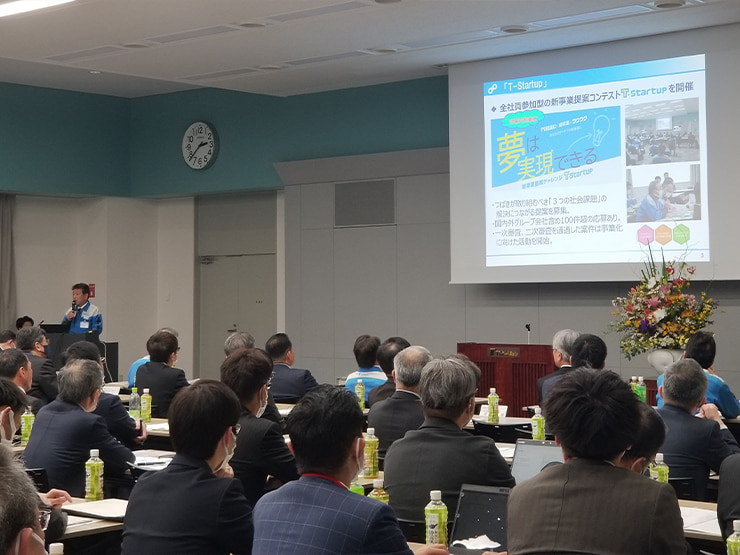
Procurement Policy briefing -
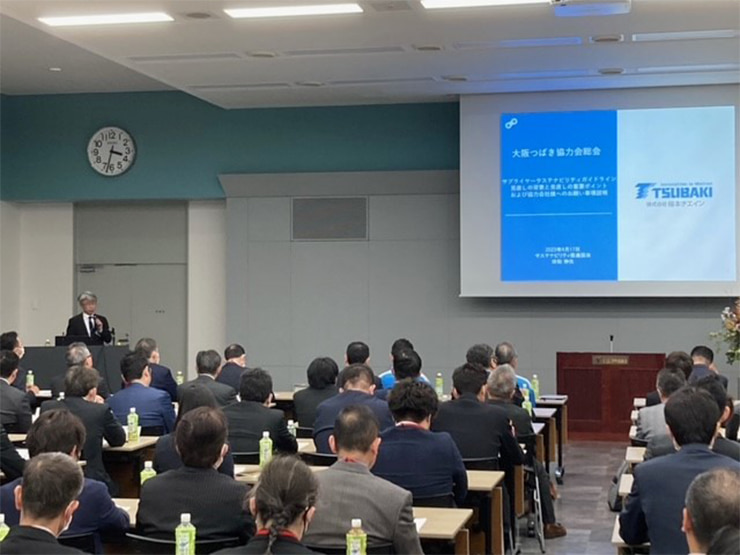
Briefing on the revised Supplier Sustainability Guidelines
2. Promotion of Green Procurement
We established our Green Procurement Guidelines in 2006 and have worked together with suppliers to promote activities for purchasing materials and components with low environmental impact. In April 2019, we revised these guidelines in order to more proactively advance efforts to reduce emissions.
We also carry out surveys on the current environmental performance of major suppliers and conduct additional surveys and local inspections of suppliers thought to face risks, as we work to achieve ongoing improvements.
Requests to Business Partners
| Requests/Orders | Raw materials, parts, packaging materials, sub-materials, etc. |
Jigs, tools, production equipment, etc. |
|
|---|---|---|---|
| Prerequisite | (1) Compliance with environment-related laws on products and business activities | Required | Required |
| (2) Management of hazardous chemical substances | Recommended* | ||
| What we ask of business partners | (1) Establishment of an environmental management system | Recommended | Recommended |
| (2) Reduction of greenhouse gas emissions | |||
| (3) Promotion of resource recycling | |||
| (4) Effective use of water resources | Optional | Optional | |
| (5) Environment-friendly design and product proposals | Recommended | Recommended |
* Management of hazardous chemical substances is required in the event of hazardous chemical substances scattering or falling from equipment onto products or in the event of hazardous chemical substances becoming attached to or transferred onto products through contact with equipment.
3. Cooperation with Suppliers
Since FY 2021, the Tsubaki Group has been implementing carbon neutral initiatives throughout our supply chain.
In the first year of these initiatives, we presented our major suppliers with our first online seminar on carbon neutrality. We highlighted trends regarding carbon neutrality in Japan and around the world as well as the Group’s policies, targets, and methods of reducing CO2 emissions. We also conducted a written survey to ascertain the state of CO2 reduction initiatives among our suppliers.
In FY 2022, we asked our suppliers to calculate their CO2 emissions and strengthen their emissions reduction efforts according to their activity levels. We will continue to work on achieving carbon neutrality throughout our supply chain. Ultimately, we will incorporate the risks and opportunities related to climate change into our supply chain management, with the aim of constructing a sustainable and resilient supply chain.
Going forward, in addition to our initiatives for carbon neutrality, by adding compliance, respect for human rights, and more as the themes, we will be even more proactive in our efforts to achieve sustainable procurement so that we can contribute to realizing a sustainable society.
Results of Carbon Neutrality Initiatives
Number of Companies Taking Part in Webinars
| FY of Implementation | FY 2021 | FY 2022 |
|---|---|---|
| Number of companies to which we have delivered webinars | 237 | 163 |
| Ratio of companies implementing status surveys of CO2 emission reductions initiatives | 90.3% | 98.8% |
* In FY 2022, these initiatives were implemented for selected high-priority suppliers
* Japanese Only
Distribution of Information on Examples of CO2 Emissions Reduction Initiatives
This initiative was implemented by our company’s Mobility Division. We distributed some examples of successful energy JIT initiatives (energy-saving activities) to suppliers, as a way of supporting their own CO2 emissions reduction initiatives.
Initiative Topics
Endorsement of the Declaration of Partnership Building
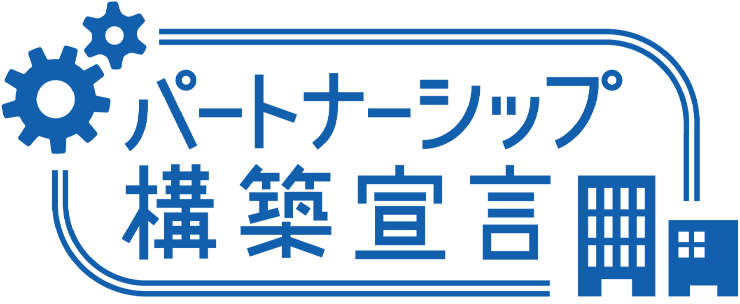
We have been registered in the Declaration of Partnership Building, which is sponsored by the Cabinet Office, The Small and Medium Enterprise Agency, the Keidanren (Japanese Business Federation), and other government agencies. The Declaration of Partnership Building aims for partnership, coexistence and coprosperity across the supply chain.
In this system, a declaration is issued in the name of the representative to encourage coexistence and mutual prosperity throughout the entire supply chain and to adhere to recommended and preferred transaction practices. The declaration by the Tsubaki Group encompasses aspects like enhancing information security, reducing CO2 emissions, fortifying partnerships, and augmenting value across the complete supply chain.
Portal Site of the Declaration of Partnership Building *Japanese version
Click here for the Tsubaki Group’s Declaration of Partnership Building (PDF) *Japanese version
Participation in the Global Compact Network Japan
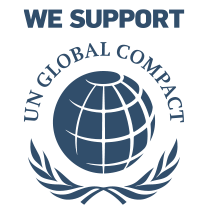
In April 2022, we signed the United Nations Global Compact (UNGC) and took part in the supply chain section meeting of Japan’s local network, the Global Compact Network Japan (GCNJ).
The GCNJ is a platform for member companies and organizations to jointly promote sustainability initiatives. In the supply chain section meeting, participating companies across industries are able to strengthen their horizontal business ties and work to spread sustainable procurement in society.
Implementation of Sustainable Training to Procurement Staff
At Group training sessions, the Tsubaki Techno School lectures, and in level-specific education, we carry out education on topics that include approaches to sustainability (CSR and CSV), demands from international society, and Group initiatives.





